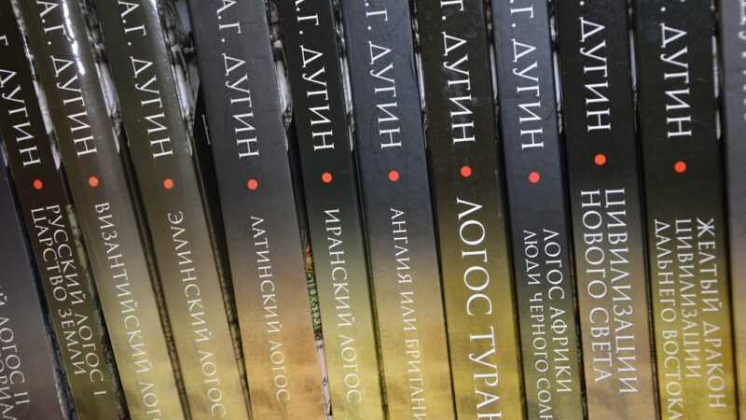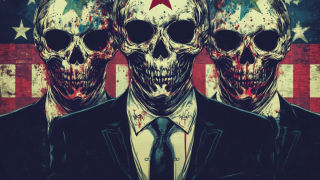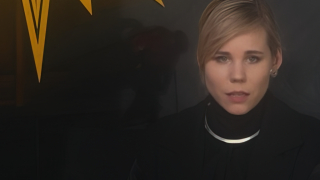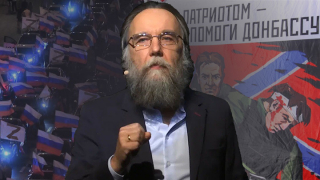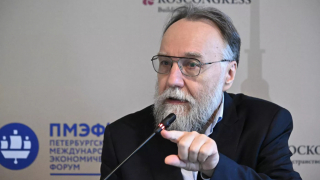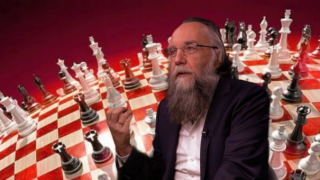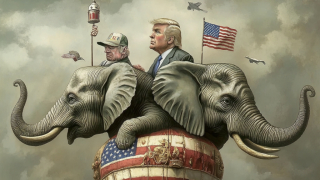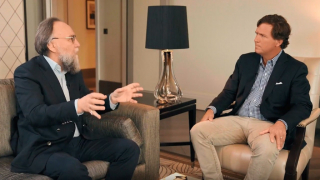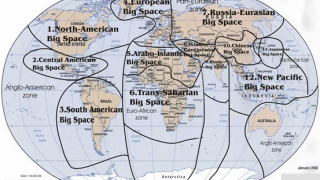Noomachy - Wars of the Minds: War as an application for the genuine philosophy
I welcome you, dear colleagues. Today is a special day, we celebrate Mid-Pentecost. In the Greek Orthodox tradition, churches that are dedicated to Sophia the Divine Wisdom have their patronal festival on the day of Mid-Pentecost. It means that today is truly a day of philosophy, truly a day of the Divine Wisdom, which our ancestors, our founding fathers handed down to us.
As you know, in the Divine Liturgy, there is a priestly exclamation: "Wisdom! Arise!" Sometimes our theologians and philosophers try to contrast divine wisdom with human wisdom. But in the original Greek text of the liturgy, the word 'Sophia' is used. Sophia refers to both meanings of wisdom: divine wisdom and human wisdom. These two meanings do not totally coincide, but, at the same time, they are not in opposition.
One can recall the thesis of Gregory Palamas, who says: God is at once unknowable and knowable. If God was strictly unknowable, then we definitely knew Him in an apophatic way. And He is unknowable in such a way that He is not only unknowable, but also not unknowable. In this sense, the Holy Wisdom is not a human wisdom, our Sophia, our philosophy, but it doesn't oppose it. There are fundamental differences between the divine and the human, but these differences are not absolute. Otherwise, the incarnation of a certain Godmanhood would not have been possible. The Feast of Mid-Pentecost is between the Second and the Third Person of the Trinity, between the Throne and the Holy Spirit. Respectively, the mediating subsequent origin, the mediative origin, is important. In fact, the feast of Saint Sophia is a feast of both divine wisdom and human wisdom (i. e., philosophy). And man, on the one hand, is a creature and something more than a creature, on the other hand.
Speaking of the philosophy of war, we are talking about the war itself and what is its divine archetype. In fact, neither one nor the other, a purely divine war or a purely human war, does not exist on its own. There is always something in common between them. This is a struggle that goes on in the world of people, in the world of tanks, weapons, blood, and real violence. And at the same time there is a war that goes on at the level of the spirit. Please note that angels also fight. Eternal angels also fight a war. By angels I mean ideas. Angels, just like ideas, fight, like immortal spirits fight among themselves and do it all the time. War begins with the fall of Satan and ends with the coming of Christ. Throughout the whole world, there is a war of angels and a war of people. These are not the same war, but they are not different at the same time. This kind of thinking can lead to an understanding of war.
We are talking not only about war and its philosophy, but also about philosophy as war. Because if angels are ideas, and ideas are minds, minds are given voice at the Liturgy. If angelic minds are at war, then this is a war that lasts forever, characteristic of the mind itself. Mind itself is a battlefield between intentions, between thoughts, between logoi. Consequently, the territory of philosophy is not a territory of peace, it is a territory of war. Initially, philosophy is the territory of war, as well as theology is the territory of war, or religion is the territory of war. Humanity is the territory of war as Fyodor Dostoevsky put it in his novel Demons. When a war breaks out explicitly in the form of a special military operation, it is rather a resolution and externalisation of what is happening even without special military operations. The earthly war, a war of people, is only the periphery, the very last, distant area of the horizon that originates much deeper. It does not begin with a clash of troops; it is always waged. And philosophers are the forefront of this war. Philosophers are the most active and the riskiest warriors, therefore, a philosopher is a true human. In fact, the best philosopher is a monk who does nothing other than live in a constant inner prayer. And philosophers are such secular monks and people on the way to monasticism.
Humans differ from other species in that he has a mind, and a philosopher puts the mind at the center of his attention. He serves only that, all the rest is in other species (animals, plants), but only human has a mind. Therefore, a philosopher is a human to the uttermost and, being a philosopher, he is a warrior to the uttermost. Exactly as a philosopher! Plato did not accidentally identify the guardians of the philosophical Polis with philosophers. The guard is a warrior, he must guard. And at the same time, he is Athena's man, who is the guardian of Athens. Therefore, a philosopher is a man of war.
I would like to expand on this. Let us not have a discussion about the philosophy of applied war, but let us consider war as an application to the genuine philosophy, i.e., war in the deepest sense.
To clarify this idea, I wrote the series of books called Noomachy, which I have been working on for about 10 years. Noomachy actually means a battle of minds. Therefore, this work is a developed philosophy of war.
Having immersed in this subject, I identified the three main areas. Noting the Platonic concept of the nous with its paradoxes, I highlighted the following areas: the first one is Apollonian, the second area is Dionysian. The introduction of the third logos of Cybele aims at reinterpreting the relation and the content of Dionysian and Apollonian and changes the balance between them.
I invite you to focus on the war that is the origin of this war. There is 'that' and 'this', as Plotinus put it. 'That' is the transcendent, i.e., inherent in this imminent world. Everything that has an imminent character has an interest for us only due to the content pointing to the transcendent. Every imminence points to the transcendent. Now philosophers embrace the historical moment of the special military operation. This happens because a philosopher can think clearly only when everything around is in full swing, when he sees troops moving, when he can commit to the clashes and dramas, when life and death are inseparable and have deep meaning. He is a keen participant; he can relate to this. He is right in the thick of it. It is what keeps him energised and sharpens his thought. More than that, he himself, by his mere existance, makes thoughts come true.
Therefore, Andrei Korobov-Latynsky's idea to hold this philosophical council, while he himself is not far from the front line, is a natural, brilliant, and the most sensible idea to discuss. A philosopher's place is at the front, and the front is philosophy. Nietzsche once predicted that he would witness the time when people would kill each other not for resources, but for ideas. This time came on the day Nietzsche died. Throughout the 20th century, people have been killing each other for ideas. The war that was fought in the 20th century and is being fought now is a war for ideas. All masks have slipped. The war is being waged for the logoi, for assertion of certain anthropological and ontological orders. The order seeks to become exclusive and dominate. It is not quite clear how we react to this new order, but we, at least, try to negate it. In philosophy, any negation is significant. We deny the logos that dominates globally today in the West, and it turns everything happening on the former Ukraine's territory into truly philosophical events.

